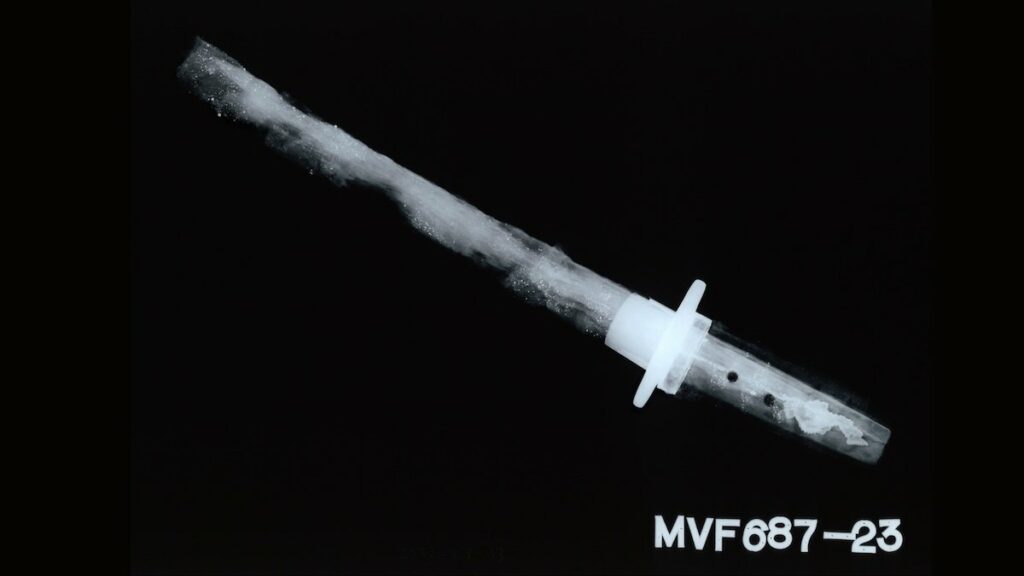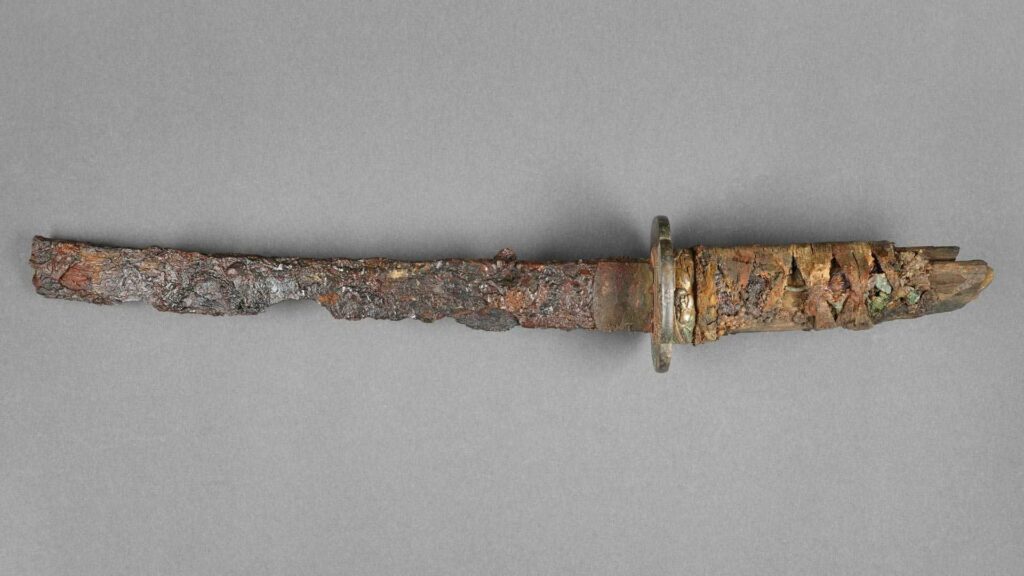
BERLIN, GERMANY—A short sword dated to seventeenth-century Japan was discovered in Berlin in 2022, according to a Live Science report. The Edo-period weapon was found during the excavation of Molkenmarkt, the city’s oldest square, among the wreckage of cellars destroyed during World War II. While restoring the weapon, conservators identified it as a wakizashi, a type of short sword reserved for samurai and dignitaries. They noticed that it had a damaged wooden handle with some surviving textile wrappings, and they spotted an image on the metal ring at the base of the blade depicting Daikoku, a god of luck who carries a hammer and rice sack. Painted decorations of chrysanthemum flowers and water lilies had been painted on the sword’s guard. An X-ray of the weapon showed that the blade had been shortened. It also revealed two holes in the tang, but only one of them had been used to attach the handle to the blade, suggesting that the blade had been reused and refashioned. But how did the wakizashi end up in Berlin? “Perhaps the sword was gift from the Takenouchi Mission in 1862 or the Iwakura Mission, which followed 11 years later,” said state archaeologist Matthias Wemhoff of the Museum of Prehistory and Early History. “The spatial proximity of the Molkenmarkt with its surrounding aristocratic palaces to the Berlin Palace suggests this,” he added. To read more about excavations of the Molkenmarkt, go to "Letter from Germany: Berlin's Medieval Origins."
